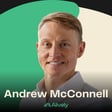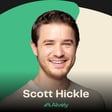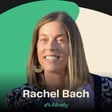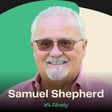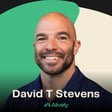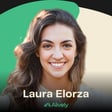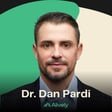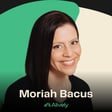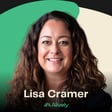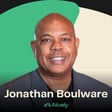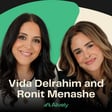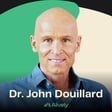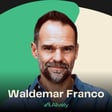
Find Food Freedom with Sam Cutler - E5
Often we are so focused on surface-level problems like weight gain, bloating and bad skin, that we miss out on addressing the real, underlying health issues. Underlying issues like stress, irregular sleep, bad digestion, and a lack of movement and mindfulness. In this episode, we look at throwing out the fad diets, restrictive eating patterns, unhelpful bedtime routines and anything that doesn't serve a fulfilling, balanced lifestyle. You'll hear all about a holistic approach to health that goes beyond surface-level metrics like weight and skin care, focusing on the importance of nutrition, mindfulness, and self-exploration in achieving true food freedom and vibrant living.
Sam Cutler is the founder of Mindful, a transformative health coaching app that empowers women across more than 30 countries to embrace a life of food freedom and vibrant well-being. With a journey marked by personal challenges and triumphs, Sam's expertise spans the domains of nutrition, fitness, sleep, and mindfulness, as she guides individuals towards a more balanced and fulfilling existence. Her influence extends beyond the digital sphere, as she fosters thriving communities through initiatives like in-person walks and women founders group events, creating spaces for connection and growth. Sam's sharing continues to encourage a shift from surface-level health metrics to a deeper understanding of true well-being.
“Can we make a positive impact with the time that we have here on this planet? Can I do that and can I help other people do the same?” - Sam Cutler
In this episode you will learn:
- The need to address underlying health issues and prioritize internal well-being, rather than focusing solely on surface-level metrics like weight and skincare.
- The importance of magnesium for managing stress, aiding sleep, and supporting digestion, with recommendations for everyday supplements and specialized products.
- Sam's detailed bedtime routine focused on winding down, incorporating relaxation techniques, magnesium baths, and creating an optimal sleep environment.
- The significance of incorporating moments of stillness, energy management, and gratitude throughout the day to maintain balance and well-being.
- The value of social connectivity and community, both in-person and virtual, for supporting mental health and personal growth.
- Practical tips for simplifying nutrition, promoting food freedom, and empowering individuals to make dietary choices that work best for their unique needs and experiences.
Resources
- Connect with Sam on Instagram: https://www.instagram.com/thefitfatale
- Join the Mindfull community: https://www.mindfull.so/
- Shop all the products Sam mentions in this episode: https://alively.com/products/samcutler
This podcast was produced by the team at Zapods Podcast Agency:
https://www.zapods.com
Find the products, practices, and routines discussed on the Alively website:
https://alively.com/
